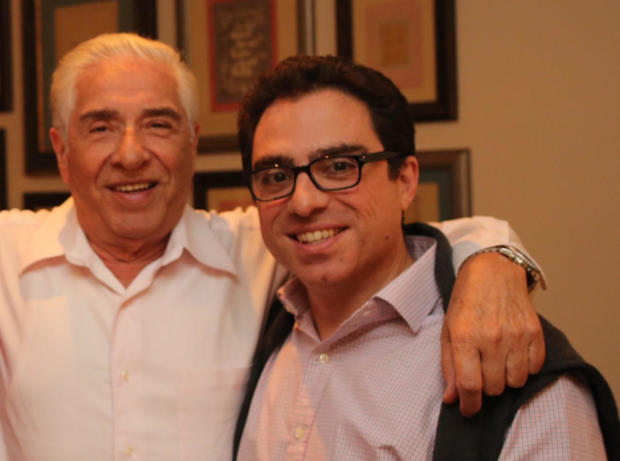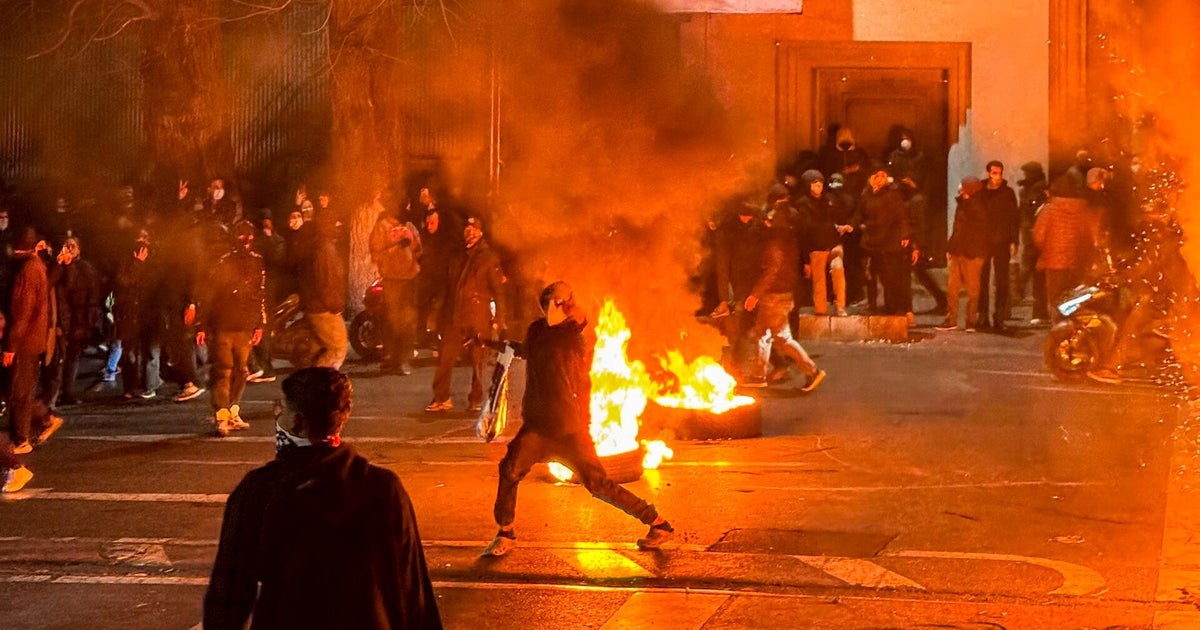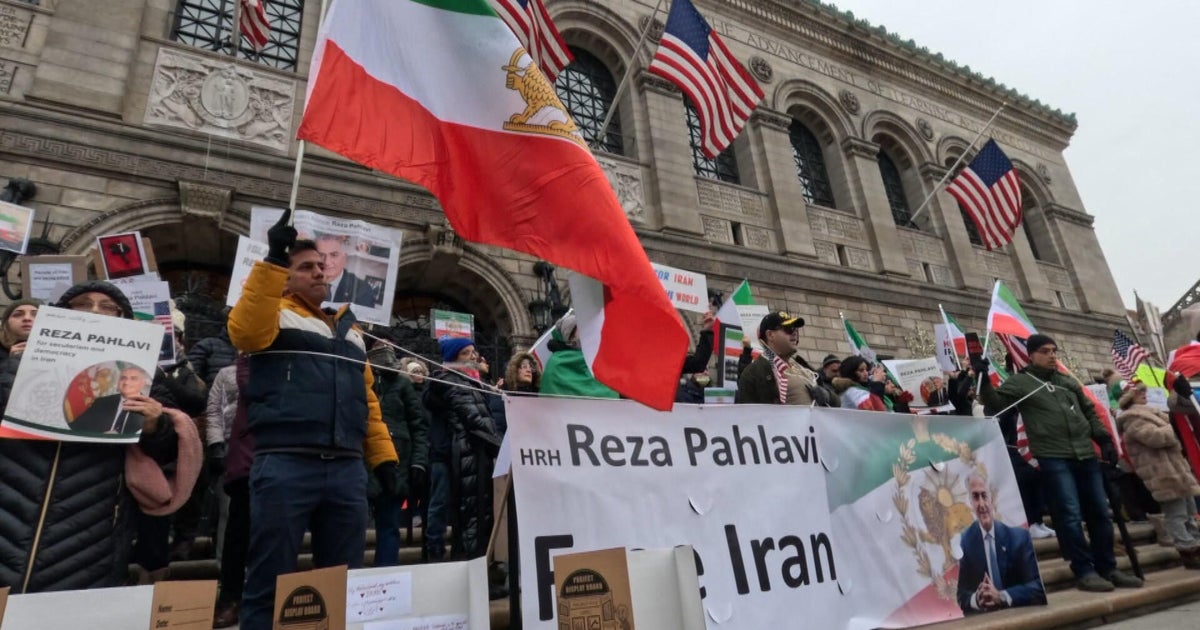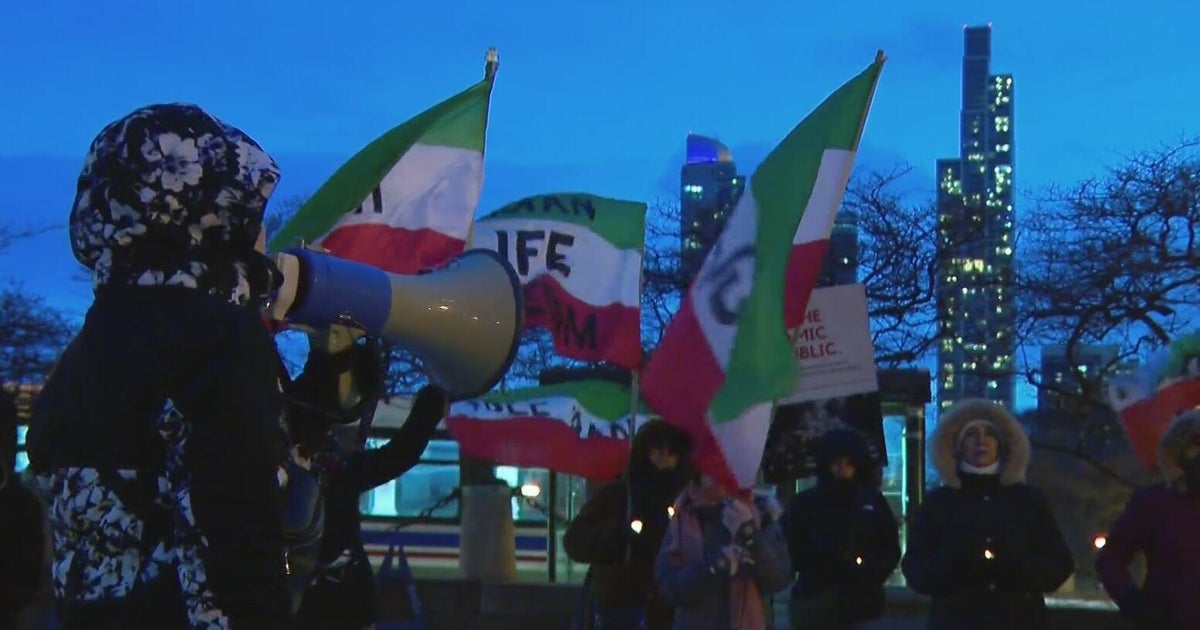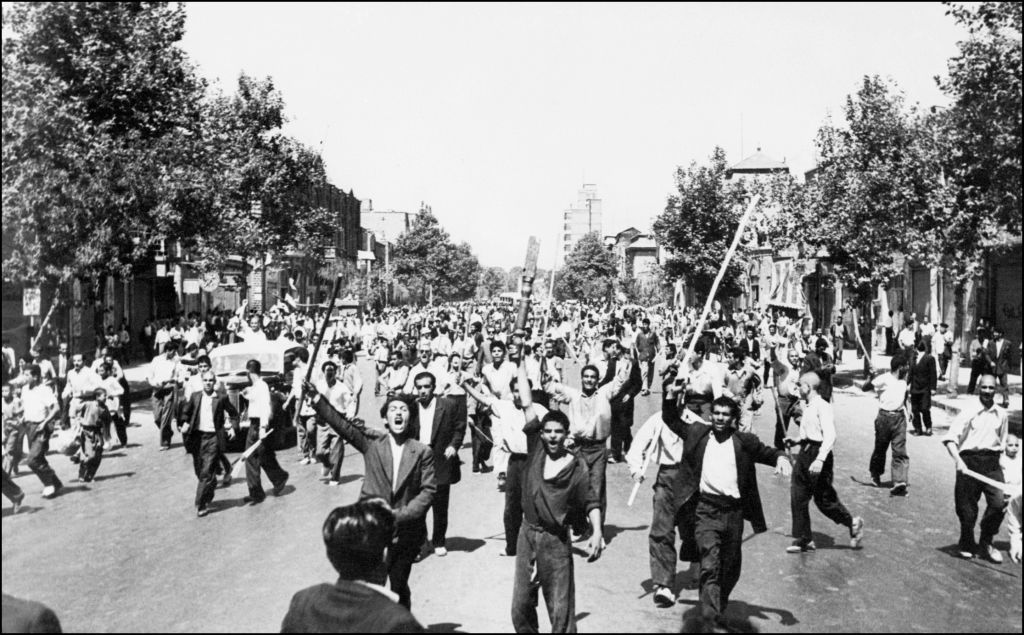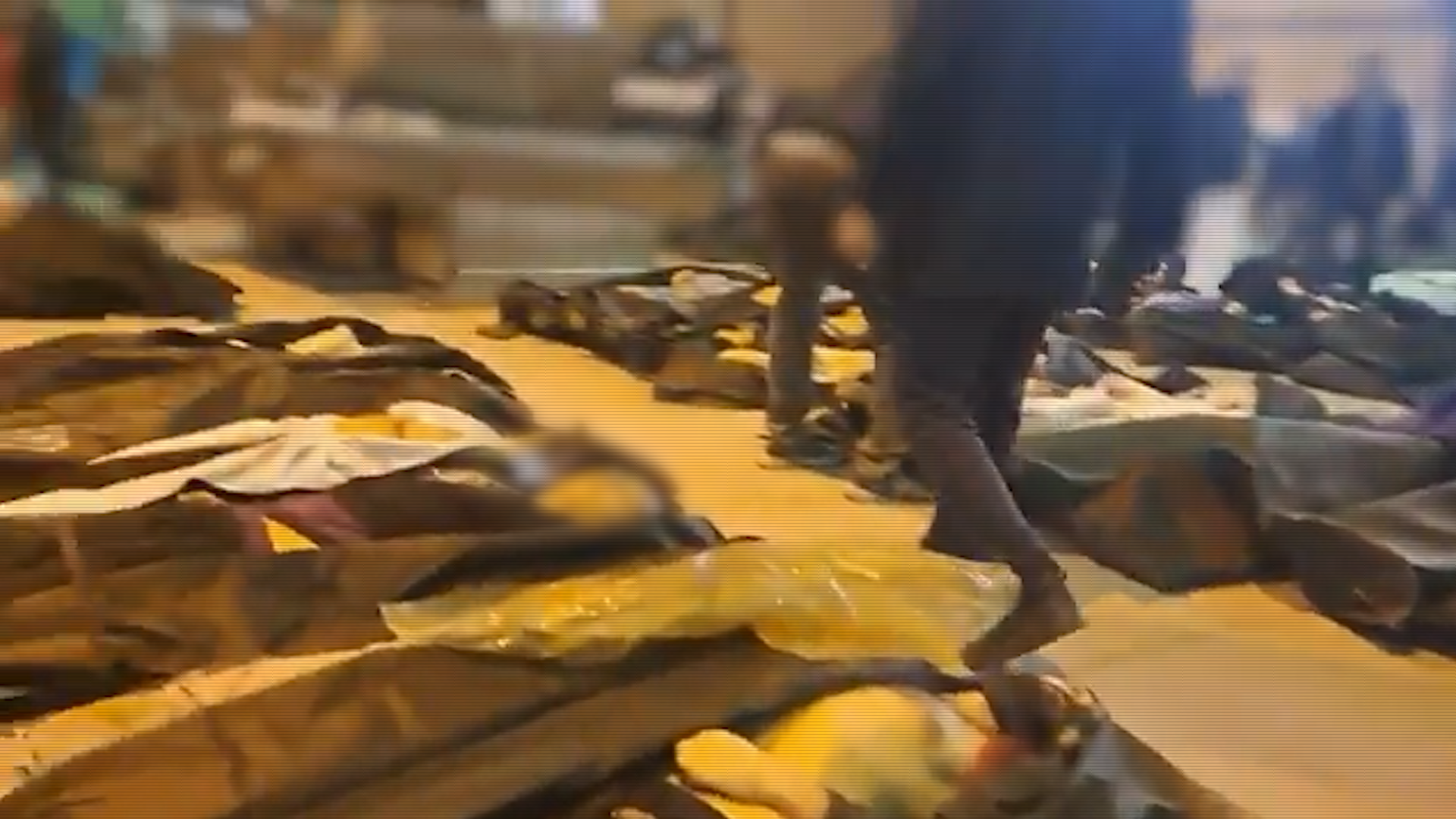U.S. detainee in Iran Siamak Namazi on hunger strike
Imprisoned Iranian American Siamak Namazi says he is going on a seven-day hunger strike — one day for each year he was left behind in a 2016 prisoner swap — in protest of the Biden administration's failure to free him and other Americans detained in Iran's notorious Evin prison.
Namazi, 51, informed President Biden of his hunger strike in a letter noting that he now holds the "unenviable title of the longest held Iranian-American hostage in history."
"All I want sir, is one minute of your days' time for the next seven days devoted to thinking about the tribulations of the U.S. hostages in Iran," Namazi wrote. "Just a single minute of your time for each year of my life that I lost in Evin prison after the U.S. Government could have saved me but didn't. That is all. Alas, given I am in this cage all I have to offer you in return is my additional suffering. Therefore, I will deny myself food for the same seven days, in the hope that by doing so you won't deny me this small request."
An attorney for Namazi told CBS News that he delivered the letter to national security adviser Jake Sullivan on Friday. For the past two years the Biden team has unsuccessfully tried to revive a 2015 nuclear accord with Iran while also simultaneously arranging a prisoner release. Both efforts have stalled and been further complicated by U.S. and Western outcry at Iran's violent crackdown on protesters and other human rights violations.
A National Security Council spokesperson said in a statement, "We remain committed to securing the freedom of Siamak Namazi, and we are working tirelessly to bring him home along with all U.S. citizens who are wrongfully detained in Iran, including Emad Shargi and Morad Tahbaz."
"Iran's wrongful detention of U.S. citizens for use as political leverage is outrageous," the statement continued. "Our priority is bringing all our wrongfully detained citizens home safely and as soon as possible and resolving the cases of missing and abducted U.S. citizens."
The Obama administration secured the release of four Iranian Americans on Jan. 16, 2016, among them, Washington Post journalist Jason Rezaian. Namazi was not included, though the U.S. officials who negotiated the deal were aware of his detention and had requested his release. The U.S. went through with the prisoner swap despite Namazi's continued detention.
Siamak Namazi's father, Baquer Namazi, who was a United Nations official at the time, was detained in Iran shortly after the U.S. swap during an attempt to visit his detained son. Both Siamak and Baquer Namazi were subsequently left behind in two more prisoner exchanges that were carried out by the Trump administration. Iranian authorities finally allowed Baquer, now 86, to leave Iran last October for life-saving medical treatment in the United Arab Emirates.
"How does one describe what it feels like to be stripped of your humanity and treated as some sort of extortionately priced item instead?" writes Siamak Namazi. "How do I explain the devastation my family and I are left with after so many half-hearted prisoner deals crumbled last minute"
Siamak Namazi remains incarcerated in Iran's Evin prison, along with Americans Emad Shargi and Morad Tahbaz. Mr. Shargi's family confirmed to CBS News that the three Americans are now located in the same prison ward, since a fire broke out at the prison last year as the country was engulfed by nationwide protests which continue to this day. U.S. permanent resident Shahab Dalili is also being detained in Iran.
Siamak Namazi implored the president to bring all Americans detained in Iran home. "In the past I implored you to reach for your moral compass and find the resolve to bring the US hostages in Iran home," he wrote. "To no avail. Not only do we remain Iran's prisoners, but you have not so much as granted our families a meeting."
"Only the President of the United States has the power to bring us home, should he set his mind to do so," he added.
In a recent interview with "Face the Nation," Shargi's wife and two daughters shared their frustration that the families of Americans held in Iran have not been granted an audience with the president. The families of Trevor Reed and Brittney Griner, both released in prisoner exchanges with Russia last year, were invited to meet with the president prior to the deals that secured their release.
The Shargi family's frustration was recently compounded when White House press secretary Karine Jean-Pierre indicated in two press briefings last year that she was not familiar with his case. "I just don't understand how I should have faith that my dad's going to be home, if the White House doesn't even know his name," Mr Shargi's daughter, Hannah, told "Face the Nation" moderator Margaret Brennan.
Here is the text of Namazi's letter to President Biden:
Dear President Biden,
When the Obama Administration unconscionably left me in peril and freed the other American citizens Iran held hostage on January 16, 2016, the U.S. Government promised my family to have me safely home within weeks. Yet seven years and two presidents later, I remain caged in Tehran's notorious Evin prison, holding that long overdue IOU along with the unenviable title of the longest held Iranian-American hostage in history.
My captors enjoy taunting me about that fact by saying things like: "How can your beloved America be so heartless? Not one but two U.S. presidents freed others but left you behind!" Yet my frank reply deprives them of any satisfaction. I tell them while I remain highly indignant about the invidious distinction the U.S. Government can make among its citizens at risk, I never forget that it was not Obama or Trump who imprisoned me on made up charges. That it is clear whose vile hostage diplomacy has blighted the lives of so many innocent men and women and their families.
Sadly, I have a far harder time replying honestly to a genuine question, "How are you, really?" I know of no words that do justice to the ineffable pain I've endured since Iran took me hostage in October 2015. Nothing I say could possibly convey the agony of having to harden myself to this soul crushing callousness and lawlessness. How does one describe what it feels like to be stripped of your humanity and treated as some sort of extortionately priced item instead? How do I explain the devastation my family and I are left with after so many half-hearted prisoner deals crumbled last minute, turning freedom into a chimera? How do I convey the excruciating terror that comes with not knowing when or how this nightmare will end or even what comes next?
Day after day I ignore the intense pain that I always carry with me and do my best to fight this grave injustice. You certainly won't be surprised to hear that my tenacity has wrought no positive results and that my repeated calls for the rule of law and show of humanity have fallen on deaf ears here. Perhaps I'm lucky that is so. After all, today the whole world is witnessing how atrociously this regime can respond to those who dare demand their basic rights.
The extent of my captors' ruthlessness is not the only thing I've learned far more about during these insufferable years. I now know that I shouldn't get my hopes up when senior U.S. officials say that rescuing the hostages in Iran is their highest priority. Such well-intentioned statements can be repeated year after year without tangible results. Only the President of the United States has the power to bring us home, should he set his mind to do so. That is why, Mr. Biden, on the 7th anniversary of being left behind by the Obama Administration, I'm once again risking a direct appeal to you.
In the past I implored you to reach for your moral compass and find the resolve to bring the US hostages in Iran home. To no avail. Not only do we remain Iran's prisoners, but you have not so much as granted our families a meeting.
So today I feel compelled to adjust my ask. All I want sir, is one minute of your days' time for the next seven days devoted to thinking about the tribulations of the U.S. hostages in Iran. Just a single minute of your time for each year of my life that I lost in Evin prison after the U.S. Government could have saved me but didn't. That is all. Alas, given I am in this cage all I have to offer you in return is my additional suffering. Therefore, I will deny myself food for the same seven days, in the hope that by doing so you won't deny me this small request.
Sincerely,
Siamak Namazi
Evin Prison
January 16, 2023

